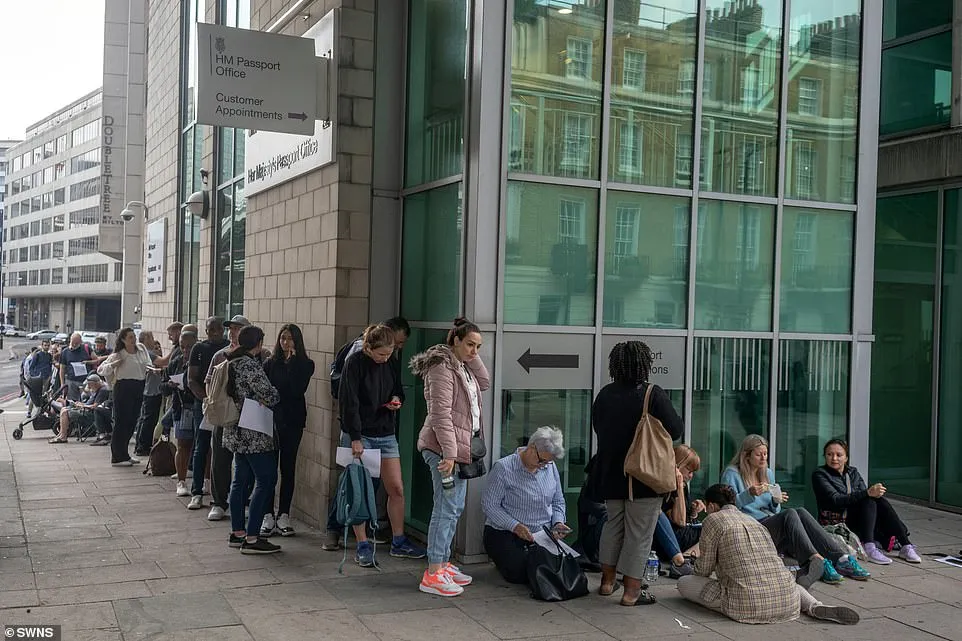Politics
Parliament Debates Fast Track Passport Policy Amid Travel Pressure

The UK Parliament has begun an intensive debate over a proposed fast track passport policy designed to address rising pressure on travel services. The proposal comes at a time when citizens are experiencing longer waiting times for passport processing due to increased travel demand, post pandemic backlogs and seasonal surges. Lawmakers are examining whether the new policy can ease delays while maintaining strict security checks. Public frustration over unpredictable processing times has led to widespread calls for a more efficient system that supports both domestic and international travel needs.
Reasons Behind the Proposed Policy
The push for a fast track system stems from several challenges affecting the current passport service. Seasonal travel peaks, staffing shortages and higher than expected application volumes have strained existing resources. Many families preparing for holidays or business trips have faced delays that disrupt plans and lead to additional expenses. The government believes that a structured fast track option could provide relief by offering quicker processing for applicants willing to pay a premium fee. Supporters argue that this measure will help balance demand and reduce pressure on standard services.
Concerns Raised by Lawmakers
Despite potential benefits, lawmakers have expressed concerns about fairness and accessibility. Several members of Parliament argue that a premium fast track system may create inequality by allowing wealthier individuals to receive quicker services. There are also questions about how the new policy will affect the workload of staff and whether it may reduce attention toward standard applications. Some lawmakers worry that prioritizing fast track requests could unintentionally slow down regular processing, leaving many citizens at a disadvantage.
Importance of Security Screening
Security checks remain a central point in the ongoing debate. Passport processing involves verification steps that are crucial for national safety and international compliance. Authorities emphasize that no change to the system should compromise security measures. The fast track proposal includes guidelines to ensure that background checks, identity verification and document authentication are completed with the same level of scrutiny as standard applications. Critics, however, caution that increased time pressure may raise the risk of oversight if not managed carefully.
Public Reaction and Customer Experience
Public reaction to the suggested policy has been mixed. Many travelers support the idea, especially those who face sudden travel requirements such as emergencies, academic commitments or business obligations. They argue that having a reliable fast track option would reduce stress and uncertainty. Other citizens remain skeptical, expressing concerns about cost and the potential for a two tier system. Customer experience groups have urged the government to improve standard processing efficiency before introducing premium options that may widen service gaps.
Technology and Digital Applications
Digital transformation has become an important part of the discussion. Parliament is reviewing proposals to strengthen online application systems, reduce paperwork and automate certain stages of identity verification. Modernizing the digital platform could help speed up processing for both standard and fast track applicants. Technology experts suggest that incorporating facial recognition tools, secure document uploads and AI assisted verification may reduce errors and shorten waiting times. These updates could also reduce pressure on in person service centers across the country.
Impact on Travel and Tourism
The travel and tourism sector is closely monitoring the passport debate. Travel agencies, airlines and hospitality groups rely heavily on consistent passport processing to support customer bookings. Delays in passport issuance can disrupt tourism flows and reduce revenue during peak seasons. Industry leaders hope that Parliament will introduce measures that support smoother application experiences while ensuring that security remains intact. Their main concern is the possibility of extended uncertainty if the new policy is delayed or implemented without adequate operational planning.
Administrative Challenges for Government Offices
Implementing a fast track policy would require additional coordination within passport offices. Staff would need to receive new training, updated software and clear scheduling guidelines to manage different application categories. Authorities must also ensure that resources are distributed fairly across the system so that standard services do not suffer. Administrative leaders acknowledge that while the policy has potential benefits, it also demands careful planning to avoid overwhelming employees who already manage heavy workloads.
Debate Over Fees and Affordability
One of the most contested elements of the policy is the fee structure. Supporters of the proposal argue that charging a premium for fast track processing is reasonable because it funds additional staff and technology improvements. Critics claim that high fees could place financial burdens on families who need urgent travel documents. Parliament must find a balance between funding the service and ensuring that the system remains fair and accessible. Some lawmakers recommend offering reduced fees for medical emergencies or humanitarian travel needs.
Path Toward a Final Decision
The outcome of the debate will depend on continued discussions, public input and detailed analysis of how the policy will affect both the passport service and the general public. Parliament aims to ensure that any changes introduced will strengthen efficiency, uphold security and support travel needs without creating barriers for citizens. While the discussion remains ongoing, the issue has become a significant topic in national politics as the country seeks solutions to modern travel challenges.






















